Related Research Articles

Williams College is a private liberal arts college in Williamstown, Massachusetts. It was established as a men's college in 1793 with funds from the estate of Ephraim Williams, a colonist from the Province of Massachusetts Bay who was killed in the French and Indian War in 1755.
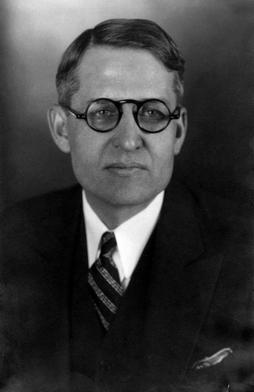
Harvey Fletcher was an American physicist. Known as the "father of stereophonic sound", he is credited with the invention of the 2-A audiometer and an early electronic hearing aid. He was an investigator into the nature of speech and hearing, and made contributions in acoustics, electrical engineering, speech, medicine, music, atomic physics, sound pictures, and education. Following his death, he was credited with collaborating with his doctoral advisor, Robert Millikan, on the Nobel-prize winning oil drop experiment which first determined the charge of the electron.
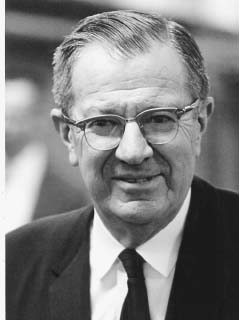
Frederick Emmons Terman was an American professor and academic administrator. He was the dean of the school of engineering from 1944 to 1958 and provost from 1955 to 1965 at Stanford University. He is widely credited as being the father of Silicon Valley.

The Claremont Graduate University (CGU) is a private, all-graduate research university in Claremont, California. Founded in 1925, CGU is a member of the Claremont Colleges consortium which includes five undergraduate and two graduate institutions of higher education.

The American Society for Engineering Education (ASEE) is a non-profit member association, founded in 1893, dedicated to promoting and improving engineering and engineering technology education. The purpose of ASEE is the advancement of education in all of its functions which pertain to engineering and allied branches of science and technology, including the processes of teaching and learning, counseling, research, extension services and public relations. ASEE administers the engineering technology honor society Tau Alpha Pi.

Cirilo F. Bautista was a Filipino poet, critic and writer of nonfiction. A National Artist of the Philippines award was conferred on him in 2014.

The Royal Photographic Society of Great Britain, commonly known as the Royal Photographic Society (RPS), is one of the world's oldest photographic societies. It was founded in London, England, in 1853 as the Photographic Society of London with the objective of promoting the art and science of photography, and in 1853 received royal patronage from Queen Victoria and Prince Albert.

William Esco Moerner, also known as W. E. Moerner, is an American physical chemist and chemical physicist with current work in the biophysics and imaging of single molecules. He is credited with achieving the first optical detection and spectroscopy of a single molecule in condensed phases, along with his postdoc, Lothar Kador. Optical study of single molecules has subsequently become a widely used single-molecule experiment in chemistry, physics and biology. In 2014, he was awarded the Nobel Prize in Chemistry.
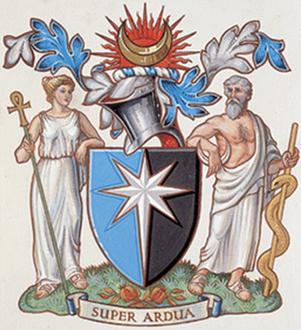
The Royal College of Obstetricians and Gynaecologists (RCOG) is a professional association based in London, United Kingdom. Its members, including people with and without medical degrees, work in the field of obstetrics and gynaecology, that is, pregnancy, childbirth, and female sexual and reproductive health. The college has over 16,000 members in over 100 countries with nearly 50% of those residing outside the British Isles. Her Royal Highness the Princess of Wales became the RCOG's patron in 2018.
Harry George Drickamer, born Harold George Weidenthal, was a pioneer experimentalist in high-pressure studies of condensed matter. His work generally concerned understanding the electronic properties of matter.
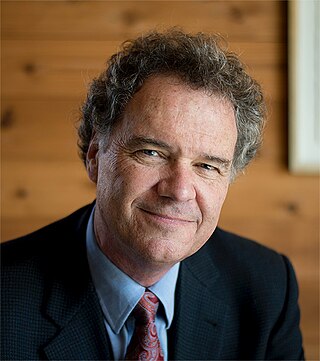
Edward Lynn "Ed" Ayers is an American historian, professor, administrator, and university president. In July 2013, he was awarded the National Humanities Medal by President Barack Obama at a White House ceremony for Ayers's commitment "to making our history as widely available and accessible as possible." He served as the president of the Organization of American Historians in 2017–18.
Edward Bruce Burger is an American mathematician and President Emeritus of Southwestern University in Georgetown, Texas. Previously, he was the Francis Christopher Oakley Third Century Professor of Mathematics at Williams College, and the Robert Foster Cherry Professor for Great Teaching at Baylor University. He also had been named to a single-year-appointment as vice provost of strategic educational initiatives at Baylor University in February 2011. He currently serves as the president and CEO of St. David's Foundation.
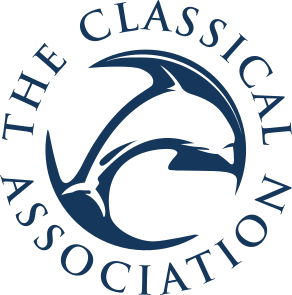
The Classical Association (CA) is an educational organisation which aims to promote and widen access to the study of classical subjects in the United Kingdom. Founded in 1903, the CA supports and advances classical learning in schools, colleges, universities and local areas, and it has a wide membership. The CA is a member of the Council for Subject Associations and is a registered charity.

Martha Euphemia Lofton Haynes was an American mathematician and educator. She was the first African American woman to earn a PhD in mathematics, which she earned from the Catholic University of America in 1943.
W. A. Hayden Schilling was the Robert Critchfield Professor of English History at the College of Wooster, Wooster, Ohio, where he taught from 1964 until his retirement in 2015.
Monique Deveaux is a Canadian philosopher. She is a Full Professor and Tier 1 Canada Research Chair in Ethics and Global Social Change at the University of Guelph. She is known for her research on poverty, cultural pluralism and global justice.
The Robert Foster Cherry Award is a prize given biennially by Baylor University for "great teaching". The Cherry Award honors professors at the College or University level, in the English-speaking world, with established track records of teaching excellence and the ability to inspire students. Robert Foster Cherry, a graduate of Baylor University, made an estate bequest to establish the award. In a typical award cycle, three Finalists are selected based on nomination packages. The Finalists then compete for the award by giving a series of lectures at Baylor University. Each Finalist receives $15,000 and the ultimate award Recipient receives an additional $250,000 prize. Although the Nobel Foundation doesn't award a Nobel prize for teaching, the Cherry Award is often dubbed as the highest teaching award in the world or the "Nobel Prize" for teaching.
The Percy L. Julian Award was first given in 1975 by the National Organization for the Professional Advancement of Black Chemists and Chemical Engineers (NOBCChE). The award is given every one to two years. It honors black scientists who have made significant contributions to the areas of pure or applied research in science or engineering.
References
- ↑ "The education of an educator" (PDF). Williams Alumni Review. 30 January 2005. Retrieved 11 November 2018.
- ↑ "Cherry Award Banquet to Honor Visiting Professors Sept. 21". Baylor University. 15 September 1998. Retrieved 11 November 2018.
- ↑ Lemoine, Noelle (18 November 2004). "Williams College's Robert Bell Named 2004 Outstanding College Professor". Williams College. Retrieved 11 November 2018.
- ↑ Lemoine, Noelle (14 February 2001). "Men for All Seasons: Williams College's Bell and Shepard". Williams College. Retrieved 11 November 2018.
- ↑ Lemoine, Noelle (16 July 2001). "Four at Williams College Named to Endowed Professorships". Williams College. Retrieved 11 November 2018.
- ↑ "Robert H. Bell". Williams College. 3 June 2018. Retrieved 11 November 2018.